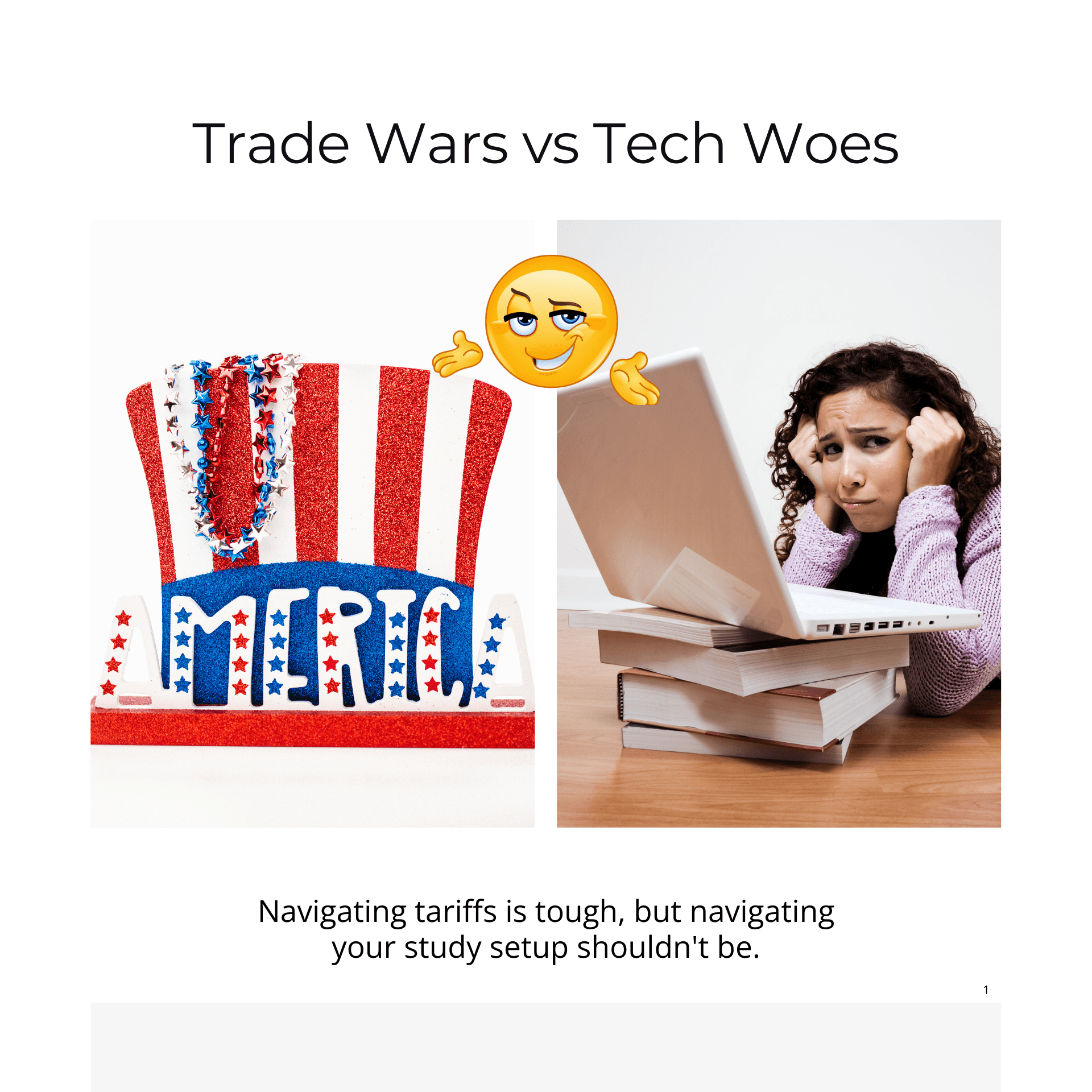How to Choose the Right Free Online Course for Your Career💡

In today’s fast-paced world, learning new skills is a must for advancing your career. With so many free online courses available, it can be challenging to decide where to start. However, with the right approach, free courses can be incredibly valuable in helping you gain the job-ready skills employers are looking for—without the hefty price tag of traditional education.
This guide will take you through a step-by-step process to help you find the ideal free course for your career goals. It’s not just about acquiring new knowledge, but also ensuring that you’re prepared for the competitive job market. With free online courses from reputable organizations like Google, Microsoft, and IBM, you’ll gain access to skills that will make you stand out to employers.
Step 1: Define Your Goal – What Are You Trying to Achieve?
Before diving into course options, ask yourself: Why are you taking this course? Do you want to advance in your current job, or are you looking to switch careers entirely? Understanding your goal will narrow down the choices and help you focus your learning efforts on what matters most.
1. What is your primary goal for taking this course?
- ☐ Learn a new skill or build expertise in a specific area
- ☐ Advance in my current job or career
- ☐ Transition into a new field or industry
- ☐ Explore a personal interest or hobby
- ☐ Gain certifications or qualifications for future job opportunities
Industry Insight: As the demand for qualified professionals grows, particularly in the technology and business sectors, free certifications from globally recognized companies such as Google, Microsoft, and IBM are increasingly valuable. These certifications not only enhance individuals’ knowledge but also serve as critical tools for career advancement. According to recent reports, industries highly value soft skills like leadership and communication, as well as technical skills in data analysis and cybersecurity.
Step 2: Identify Your Learning Style
Everyone learns differently. Are you someone who thrives in a self-paced environment, or do you prefer a more structured approach with deadlines and milestones? This step is essential to ensure the course fits your personal learning preferences.
2. What type of learning style suits you best?
- ☐ Self-paced learning that I can fit around my schedule
- ☐ Structured lessons with clear milestones and deadlines
- ☐ Interactive or hands-on courses with practical assignments
- ☐ Instructor-led courses with direct feedback and support
Why this matters: Many platforms such as edX and Coursera offer courses at both self-paced and structured levels, depending on how you learn best. Google’s Digital Garage, for example, provides flexible digital marketing courses that allow learners to gain practical skills at their own pace. It’s important to match your learning style with the right course to ensure maximum retention and success.
Step 3: Consider Your Time Commitment
Time is your most valuable asset. And let’s face it—if you’re not careful, it’s easy to waste hours on something that doesn’t move the needle. Be realistic about how much time you can dedicate to your course. Will you follow through if you’re only committing 2 hours a week? Make sure you’re selecting a course that fits into your current life—without adding stress.
3. How much time can you realistically dedicate to this course each week?
- ☐ Less than 2 hours
- ☐ 2-5 hours
- ☐ 5-10 hours
- ☐ More than 10 hours
Industry Insight: While some free courses are designed to be short and manageable (taking only a few hours), others may require up to 300 hours for certification. For instance, IBM’s Data Science Professional Certificate is a comprehensive program that may take a significant time commitment, but it offers a well-rounded skill set that can substantially enhance your employability.
Step 4: Evaluate Your Knowledge Level
What is your current understanding of the subject matter? Are you starting from scratch, or do you already have experience? This step will guide you to the right level of course for your needs.
4. What is your current level of knowledge or experience in this area?
- ☐ Beginner: I’m just starting to explore this field
- ☐ Intermediate: I have some experience but want to build more skills
- ☐ Advanced: I’m looking to specialize or deepen my knowledge
Why this matters: If you’re a beginner, choose introductory-level courses that cover the foundational knowledge. If you already have some background in a field, consider intermediate or advanced courses to enhance your expertise. For instance, Georgia Tech’s AI Basics course is a great introduction to artificial intelligence, perfect for those just starting out in the tech field.
Step 5: Set Your Desired Outcome
What do you hope to achieve by the end of the course? Whether it’s gaining new skills, receiving a certification, or applying your learning to a real-world project, defining the outcome is essential.
5. Which of these best describes your ideal course outcome?
- ☐ I want a course that will help me land a job or internship
- ☐ I want a course that will provide me with a portfolio of work to show to potential employers
- ☐ I want a course that gives me general knowledge and insights without the pressure to achieve a tangible result
- ☐ I want a certification or official recognition of my skills
Industry Insight: Many employers value certifications as proof of competencies, especially in technical fields. While free certifications might not carry the same weight as a traditional degree, they still demonstrate your commitment to professional development. For example, Google’s IT Support Professional Certificate can significantly boost your employability, especially in tech sectors where demand for skilled workers is growing.
Step 6: Choose Your Industry or Field of Interest
Free online courses cover every field imaginable—whether you’re into tech, marketing, or healthcare, there’s something for you. For example, if you’re interested in Data Science, check out free introductory courses on Khan Academy or dive into more specialized topics on Coursera. The key is to focus on your passion—this will help you avoid feeling overwhelmed by the options.
6. What industries or fields are you most interested in?
(Select all that apply)
- ☐ Tech/Software Development
- ☐ Digital Marketing
- ☐ Graphic Design/UX/UI
- ☐ Business/Entrepreneurship
- ☐ Data Science/Analytics
- ☐ Education/Teaching
- ☐ Health/Wellness
- ☐ Other: ________________________
Why this matters: There are free courses available for almost every field, from cybersecurity to entrepreneurship. In today’s job market, data analysis, artificial intelligence, and digital marketing skills are in high demand, and platforms like Codecademy and edX offer specialized courses to meet these needs. For example, Coursera’s Effective Communication Specialization can enhance your communication skills—essential for career advancement in business and leadership.
Step 7: Assess the Type of Support You Need
Support is a key factor when choosing a course. Do you prefer peer support or direct mentor guidance?
7. What kind of support are you looking for while taking this course?
- ☐ Peer support, community, or networking opportunities
- ☐ One-on-one instructor or mentor support
- ☐ Forums or discussion boards to ask questions
- ☐ I prefer to learn independently without much outside support
Why this matters: If you thrive in a collaborative learning environment, seek courses that offer community engagement. Platforms like Khan Academy and Alison provide ample opportunities for interaction through discussion boards and peer feedback. For those seeking a more independent learning experience, platforms with self-paced courses like Coursera are ideal.
I was stuck in a marketing job that I didn’t enjoy. I signed up for a free digital marketing course on Google Digital Garage and learned exactly what I needed to pivot into a career I love. Best of all? No cost, no stress, just results!” – Elias, Marketing Professional
Step 8: Consider the Platform and Reputation
The platform offering the course is just as important as the course content itself. Reputable platforms such as Google, Microsoft, and IBM have built trust in the industry and can make your certifications stand out to employers.
8. How important is the reputation of the course provider or platform?
- ☐ Very important: I want a course from a trusted provider like Coursera, edX, or Khan Academy
- ☐ Somewhat important: I’m open to lesser-known providers if the content is good
- ☐ Not important: I just want a quality course, regardless of the provider
Industry Insight: The reputation of your course provider plays a critical role in how your certification is perceived by employers. For instance, IBM’s cybersecurity courses are highly regarded within the tech industry, and completing these can help boost your profile, particularly in regions like Latin America, where free certifications bridge the skills gap and create job opportunities.
Step 9: Address Your Concerns
Finally, consider your concerns about the course. Are you worried about the course’s applicability in the job market? Or is it the credibility of the certification that concerns you?
9. What is your main concern when choosing a course?
- ☐ Ensuring I can apply the skills learned to my career or personal growth
- ☐ Not wasting time on a course that won’t add value
- ☐ Getting a course with support and engagement
- ☐ Finding a course that fits my schedule and lifestyle
Why this matters: Free certifications may not always be as widely recognized as degrees, but they can still provide substantial value when coming from trusted organizations. The digital shift has made online learning more acceptable, and digital certificates are gaining credibility across many industries. Employers are increasingly accepting digital credentials, which helps make free certifications an effective tool in advancing your career.
Now, You’re Ready to Choose!
With the insights and questions outlined above, you now have the tools to find the perfect free online course for your career goals. Whether you’re looking to gain technical skills, such as data analysis or AI, or to improve soft skills like leadership and teamwork, there’s a wealth of free resources available to you.
💡Share your responses with ChatGPT! Get personalized course suggestions based on your preferences!
**Free online courses don’t mean less value**; on the contrary, they often come from some of the most prestigious providers in the world, offering you the chance to learn new skills that can dramatically enhance your employability. The flexibility, accessibility, and affordability of online learning allow you to invest in yourself and keep your skills relevant in a rapidly evolving job market.
Some Popular Platforms for Free Courses:
- Coursera: Offers courses from universities like Stanford and Yale.
- edX: Offers courses from Harvard and MIT.
- Google Digital Garage: Focuses on digital skills for the modern job market.
- Khan Academy: Free educational content on a wide range of subjects.
By choosing the right free online courses and committing to learning, you’re investing in your future career success. Happy learning!
The Best Online Learning Platforms—And 30+ Amazing Essentials to Supercharge Your Study Setup
Beyond Insurance: The Amazing Finds Every Indian Homeowner Needs to Sleep Easy
Balancing Career & Family: How Artificial Insemination Can Help
Top Skill Building Courses on Coursera for Career Growth (2025 Guide)
Financial Architecture: Your Money, Your Plan, and Simple Steps to Make It Grow
Why India’s Style-Savvy Women Are Ditching Fast Fashion Footwear





